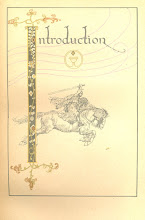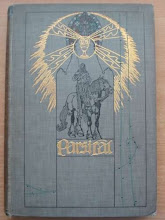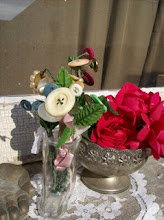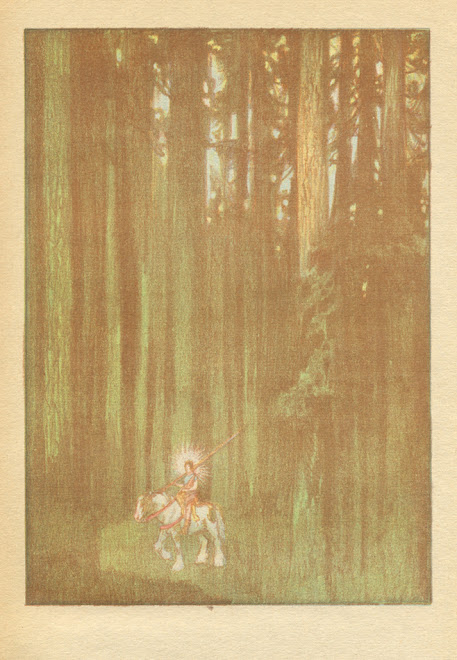I’ve been Twittering about
The Magician’s Book by Laura Miller, a kind of biography and literary analysis of C.S. Lewis combined with some personal essay about Miller’s feelings about his work, especially the Narnia series of books. She did a really excellent job of researching Lewis, especially the influence of his childhood on his later life, his intellectual background and his relationships with the Inklings, a group of literary and intellectual men at Oxford which included his friend J.R.R. Tolkien. Miller accessed resources at Wheaton College in Chicago and traveled to England and Ireland to look for clues in Lewis’s environment to the origins of his Narnia stories. She was transported by them as a child, grew estranged from them as an adolescent when she realized their Christian sub-context, and returned to them as an adult literary critic (she was one of the co-founders of
Salon, the online journal). I enjoyed most of her book, to the degree where I had a hard time putting it down and eagerly looked forward to my reading time each day as I worked my way through it, often stopping to conduct my own internet research when some detail piqued my curiosity. I am a fan of Lewis, with many of the same feelings from childhood about him that Miller shared, but without the shocked betrayal that she felt at the discovery of his Christian agenda. I apparently had a better church experience as a child than she did - I was raised with a record of sporadic attendance at a mild-mannered Protestant church of the Scottish Methodist persuasion. I never had a problem with Christianity until I got much older and realized that I don’t agree with a lot of how it is conducted; I don’t believe in proselytizing or mission work other than charity-oriented projects because I feel that religion should rely on attraction rather than coercion, and I also don’t feel that any one religion is superior to any other or is the only true path or answer. Many religions including Christianity say that they are the only way, but that stems from tribalism and the need to validate the faiths and to attract followers to them. Religions are cultural reflections and therefore none is greater or lesser than any other. They all have universal constants and they each have something to teach us, the same way every individual does. Taken together rather than viewed hirarchically or exclusively, they are even richer, because they form a tapestry of geographic, social and temporal influence that is fascinating to observe. I have extensively studied religions of all kinds and as an adult have attended congregations as diverse as Orthodox Jewish, Sufi Muslim, Presbyterian, Tibetan Buddhist, and Hare Krishna, so my philosophy is not just something that I learned from books - I have put my money where my mouth is. I have attended a number of Anglican churches, the denomination of Christianity that Lewis subscribed to, and have found my experience doing so to be very helpful toward an understanding of something of his perspective. I was already very familiar with the Biblical stories that form the foundation of the Narnia ones, so when I made the conceptual leap around the age of nine that enlightened me as to their subtext, I wasn’t surprised or outraged by the discovery. It made sense to me that if Aslan was God in Narnia, then Aslan could be Jesus, too. The mention of Aslan’s father as the Emperor-Over-the-Sea cemented my understanding. I’ve always been pretty comfortable with God, and was very much so as a child. I liked going to church, maybe because we didn’t do it all the time so it never became a chore. It felt more like visiting a friend, and getting to sing and listen to stories, all of which are favorite pastimes of children. The church we went to was very pretty, built from bricks of pink granite, a native stone of Texas, with stained glass, and when I went to other churches, such as my grandmother’s in Dallas, it was usually for Christmas or Easter, festive occasions that almost felt like a party, with special music and decorations. Therefore, finding the God I already knew from church in a new guise as an animal in a favorite fantasy book presented no problem for me. It actually kind of made the stories better, and it was fun to think of God, the usually disembodied presence, as a big golden lion that would sometimes let little girls ride on his back. Miller had a very different experience. She was raised Catholic, and while she takes pains to explain that it was not as strict a Catholic upbringing as some, she still found it dreary and confining. She felt outraged and cheated when she learned of the Narnian/Christian connection by reading about it in another book. She felt that Lewis had played a trick on her and had constructed a trap that seemed at first to lead to a new freedom but then led right back to the same old tradition she did not care for. She almost sounds like some pagans I know who, centuries later, bitterly resent the fetter that the coming of the “new religion” put upon the old beliefs in Europe, but I think she is actually psychologically closer to modern agnosticism or atheism (she never states her religious convictions directly, so I am conjecturing that). I remember that a roommate I had in New York City had some highly disparaging things to say about Narnia and complained that the stories were like something from a Christian bookstore and not something fun or new at all. He had pretty much rejected religion altogether, I think more as a reflexive fashion statement than as a well-considered philosophy. I just chalked it up to his youth and the rebellion that usually accompanies that, but it seems that many people feel that same way, believing that the Christian content somehow cheapens the Chronicles. Christianity as an organized system has in fact often thrown its weight around in the West, so I’m not necessarily surprised by that reaction, but I also don’t want to throw the baby out with the bathwater. The Church gave us the Inquisition and tacky strip mall bookstores, but it also bequeathed us the glories of Gothic architecture and facilitated the preservation of learning in the chaos after the fall of Rome, so it deserves a thorough weighing of its drawbacks and merits rather than a kneejerk appraisal based on personal resentments. Lewis was not only a practicing Christian, but a published theologian and a Medieval scholar. I am a Medievalist, too, partly through his inspiration though not yet of his caliber, and I understand something of the mindset of that era and of those who study it. The Church was an enormous influence on the art and writing of the period, and at the same time, as Miller also very creditably points out, the Middle Ages were teeming with other cultural and religious influences as well, everything from pagan stories to classical mythology to Islam. Medievals did not have any trouble holding multiple and sometimes conflicting conceptions in their heads simultaneously, and the Chronicles present a personal palimpsest of Lewis’s mind that shows something very similar. I am also a Jungian by temperament, so that kind of overlapping of various strata of symbols is very familiar to me. Lewis’s portrayal of God as a lion makes perfect sense in his own context, as far as I am concerned. That is a solar archetype from alchemy, often seen in Medieval literature, and one with which as a professor of that field he was certainly familiar.
I stated on Twitter that I feel Miller is much more of a materialist than I am, and that that is why we parted ways on our perceptions of the Narnia books and their God content. She helped found an internet publication and thrives in the New York publishing world, a place that is very literal and material. I consider myself a mystic and I have chosen to study religion, art, and archetypal psychology. I worked in that same publishing world for a few years, and while it was a very good learning experience, I ultimately found that it was not a good fit for me. I am happier in the realm of poetry and academics than that of consumer magazines. I also have a lot more in common with Lewis than I think Miller does. The final conceptual difference I had with her came in the concluding pages of her book. She stated that she did not care for
The Last Battle, the apocalyptic book that ended the Chronicles and indeed the world of Narnia. She said many of the people whom she interviewed felt the same way, including the fantasy writer Neil Gaiman who loves Lewis and Narnia but who also felt that the final book was a letdown and the weakest of the series. Miller said that the destruction of Narnia made her sad, that it felt gratuitous, and that it made no sense to her that the Pevensies and their friends end up in a Narnia that makes the original one look like only a pale reflection. She loved the material Narnia so much that she did not want the replacement “further up and further in” that took its place. I don’t share this assessment. We were privileged as readers to be present at the creation of Narnia and so I think that it is a fitting conclusion that we are also to be witnesses to its destruction. As an adult contemplating the possible purposes of that, I can only conclude that Narnia is an artistic representation of a compressed cosmic cycle which Lewis designed and presented to make us comfortable with the concept of the death of worlds that will one day come to our own, whether through global warming, an Apocalypse, a Kali Yuga or simply the eventual death of our sun, and the promise of the renewal that will follow.
The Last Battle closes one circle and opens a new one, in a dance like the eternal return. Narnia did not die; it did not go anywhere at all. It always was and always will be, like the proto-universes in the Wood Between the Worlds, the transitional space teeming with life that Miller discusses at great length. It is very strange to me that Lewis provided Miller with a restored Paradise itself, and she wanted no truck with it, I think because she truly did not understand what he was getting at. My takeaway opinion is that she thinks like a critic and does not have the mystic’s understanding of God, at least that of the emanationist philosophical branch that generated the Platonic concepts and a whole field of related systems with which as a Medievalist Lewis was very familiar. That construct holds that God is the center, the ultimate truth and that all things emanate from Him into material creation. The closer one moves toward Him, the more “real” things become because they are that much closer to their Source. That isn’t a consolation prize for the “lost” Narnia, it’s the real deal. It doesn’t degrade or replace the earlier Narnia, which served its purposes well as a lovely poem of its Creator. The simple fact is that the “real” Narnia IS ITSELF the Creator, part and parcel of Him. I personally loved
The Last Battle and it felt just right to me as an ending to the tales I had loved so much. I still remember tearing up when it described the land beyond death as a state of dwelling in eternal happiness with those one loves the most, including God. If everything comes from God, then to reunite with Him is naturally to reenter the land one loves: the New Jerusalem, the Summer Country. It is the incorruptible place beyond entropy and the aether of eternity where our immortal soul already dwells - so what's not to like? I guess I always was a baby mystic, and I don’t suppose every kid would find these concepts so easy, but Lewis gave us credit that we would comprehend them sooner or later, or he would not have incorporated such rarefied concepts into books for children. The walled garden in
The Magician’s Nephew and the model of the archetypal Narnia located further up and further in are integral to the ascent mysticism I’ve become so embroiled in lately, the true stream of knowledge linking Creation to its Creator in a song that calls us home. This is the water I swim in, and now you can see one of its earliest sources for me, the imaginal world of Narnia. The concept that Miller most irrefutably and elegantly put forward was that of Narnia as a compendium of every literary reference that Lewis himself ever loved. The books contain elements from Shakespeare, Spenser, the
Bible, Plato,
Phantastes, the
Metamorphoses, etc., a catalog of their author’s voracious reading. Herself a true book lover, Miller posited Narnia as a land of literature, and, despite our other differences, on that point we can agree and mutually enjoy our time spent there.
More info on
The Magician's Book:
http://www.magiciansbook.com/









